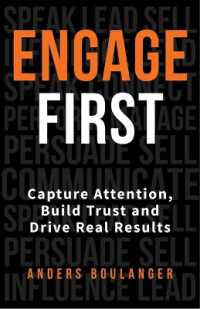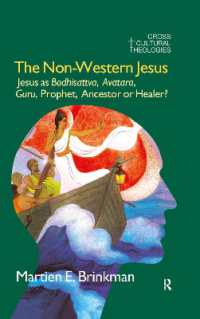Full Description
The first of two volumes, this book about the criminology of Carlo Morselli includes diverse contributions that study the social inter-dependence of criminal phenomena. It presents various studies on the importance and impact of social ties on offenders, victims and the social response to crime.
The idea that social relationships are central to the understanding of human phenomena draws its roots from Jacob Moreno's work in 1934, whose contribution - among others made at about the same time - paved the way for social network analysis (SNA), a set of methods and approaches that study dyadic relationships and their connections to other dyads in the same network. Surprisingly, SNA was not widely adopted in criminology until the end of the 20th century. It took researchers like Carlo Morselli to apply the principles of SNA and graph theory to criminological objects. As a researcher, Morselli embodied SNA; he was a so-called 'broker' in his network of social scientists, linking dozens of excellent researchers that he collaborated with, directly or not. Granovetter showed that 'weak ties' - or acquaintances - were important in the diffusion of new ideas, and Morselli put that insight to practice in criminology. This collection of works from experts in the field takes on questions that Morselli worked on throughout his career, drawing on his theoretical insights, his methods, and even his general conceptualisation of what organised crime is, and isn't, to deliver rich and fertile scholarship on the study of social networks in criminology.
The Criminology of Carlo Morselli - Part I will be a key resource for academics, researchers, and advanced students of Criminology and Criminal Justice, Sociology, and Social Sciences. The chapters included in this book were originally published as a special issue of Global Crime.
Contents
Introduction: the criminology of Carlo Morselli 1. The determinants of group membership in organized crime in the UK: A network study 2. Violence brokers and super-spreaders: how organised crime transformed the structure of Chicago violence during Prohibition 3. Come at the king, you best not miss: criminal network adaptation after law enforcement targeting of key players 4. Cryptomarkets and the returns to criminal experience 5. Criminal achievement, criminal self-efficacy, and the criminology of Carlo Morselli: suggestions for continuing and extending a fruitful line of inquiry 6. Assessing variation in co-offending networks







